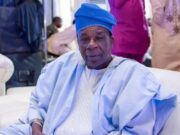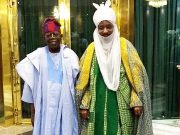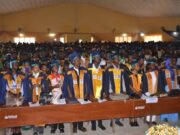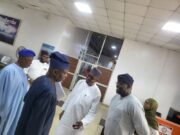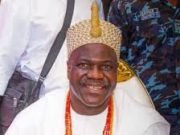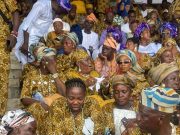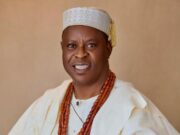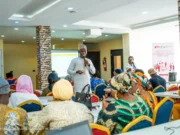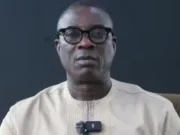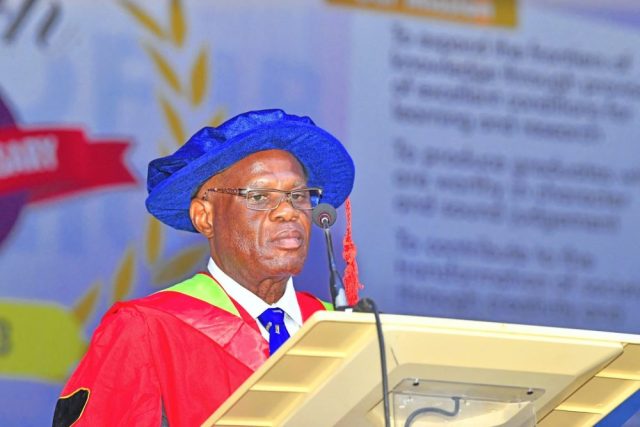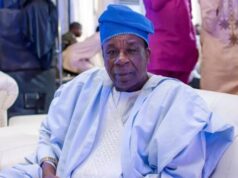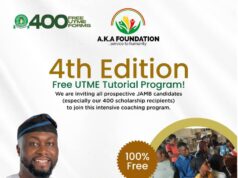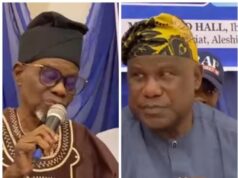A Professor of Monetary Economics at the University of Ibadan, Professor Davies Olufemi Ogun has submitted that “long run” affects policy experiment and makes policies more credible, hence, policymakers should not entertain fear of the unknown.
He made the submission while delivering the 584th Inaugural Lecture of the University of Ibadan on behalf of the Faculty of Economics and Management Sciences.

The title of the lecture was “Policy Choices and The Fear of The Unknown”.

The inaugural lecturer explored how the unknown, which he termed “long run” in his lecture, affects policy experiments.
He, therefore, advised policy makers to exercise less fear or restraint on long run incorporation into policy experiment, calling for policy or exogenous development that change the domestic price level and the nominal exchange rate in the same.
Professor Ogun advanced that long run provide time for policy credibility, urging policy makers to banish the fear of the unknown in policy development.
He said rational expectations imposed rational anticipation on firms and market agents, hence adjusting economic behaviours accordingly therefore advocates the erection of new production lines in anticipation of the impending surge in demand that would accompany the expected currency devaluation.
Professor Ogun stressed that while the effects of parallel market exchange rate and nominal exchange rate should be expected to wear off in the long run, the effects of corruption might still be active in the same run.
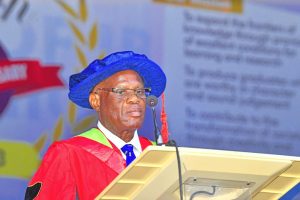
He submitted that in the long run, real factors such as technological progress and changes in taste are likely to be the driver of export growth, and suggested that as much as possible and clearly consistent with economics theory, the long run should be factored into design and policy implementation.
He explained that the long run was designed as an instrument of economic persuasion and policy to checkmate mercantilism, which was the reigning economic orthodoxy between 1500 and 1750.
TAX COMPLIANCE: FIRS Gifts MSME Operator With Cash, Car
According to him, the Mercantilists pursued a policy of a zero-sum game by which one country’s prosperity was at the expense of another, thereby often resulting in wars in that era and growth was defined in terms of the accumulation of precious metals.
He said in the policy arena, the beginning of the fear of the long run dates back to the pre-Great depression era, precisely 1923, noting that in the context of money and finance, most generations of classical economists believe that money or finance have no real effect on the economy and thus, it is of negligible long run value.
Professor Ogun stated that in policy context, the long run describes the state at which conventional economic policy, especially monetary and fiscal policies, have no effect on output.
He disclosed that consensus from research exercises was that corruption could be very harmful to the economic growth model and could significantly erode the gains.
The lecturer noted that corruption exists in almost all countries of the world but the nature and manner of occurrence of the vice in developing countries were such that, it generated serious adverse consequences for the growth of such economies in the short run and the long run.
The Inaugural Lecture was the seventh in the series for the 2024/2025 academic session.



